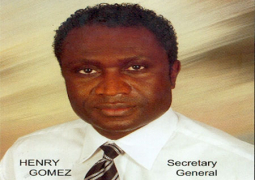The American Embassy in
Moderated by the Internet Society, an international cause-related organisation that works for the open development and evolution of the internet for all people, the one hour conference covered, among other issues, the introduction to the Internet, enabling Internet access, promoting Internet freedom and building multi-stakeholder Internet communities.
Speaking to the audience, Sally Wentworth, the Senior Manager for Public Policy at the Internet Society gave a brief background of the Internet Society, which she said, was founded in 1992 by Internet pioneers, as an international non-profit organisation.
She stated that the Internet Society envisioned a future in which people everywhere can use the Internet to improve the quality of their lives.
Dilating on the potential of the Internet for The Gambia, Sally added that the internet is borderless and can connect Gambians to global communities. She also described the internet as an opportunity for economic, social, and cultural development.
On the challenges of the Internet to the African continent, Sally said the United Nations Millennium Development Goals identified ICTs, as key enablers for poverty reduction and growth, supporting education, health and agriculture.
"Internet penetration stands at less than 5% on the continent, the lowest in the world," she said, adding that telecommunication costs are exorbitantly high.
"Network operators suffer from gaps in networking skills and knowledge, regulatory barriers and bottlenecks, and operational constraints that hamper their ability to grow and sustain efficient and reliable access networks," she noted.
Sally further stated that the Internet itself is still in its infancy, but noted that it vastly outweighs the risks and are only possible by embracing the open nature of the Internet; preserving the user's ability to connect, communicate, innovate, share and choose.
She also noted that with access in developed countries so high, developing countries are the next frontier for sustainable Internet growth.
According to her, African universities are crucial to the future development of the internet on the continent in two ways: Firstly, they contain one of the largest groups of existing and potential users: today's student user is tomorrow’s future decision-maker; secondly, universities should be generators of content that will be used by the same students to increase their knowledge and skills.
On the promotion of Internet Freedom, Sally said the role of the internet as a global platform for innovation, economic development, and social progress is threatened when governments or institutions place excessive restrictions on the evolution and use of internet technology.
She noted that the Internet thrives where conditions allow openness, transparency, education, freedom to access information and freedom to create and innovate.



